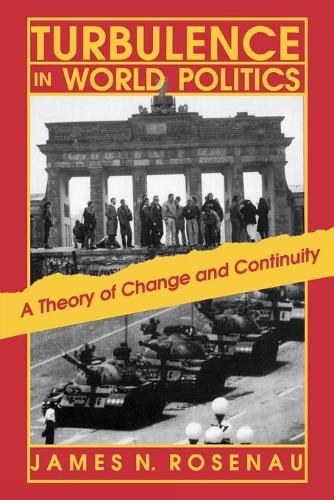
Turbulence in World Politics: A Theory of Change and Continuity
(Paperback)
Publishing Details
Turbulence in World Politics: A Theory of Change and Continuity
By (Author) James N. Rosenau
Princeton University Press
Princeton University Press
28th September 1990
United States
Classifications
Professional and Scholarly
Non Fiction
327.1
Runner-up for Choice Magazine Outstanding Reference/Academic Book Award 1991
Physical Properties
Paperback
504
Width 152mm, Height 229mm
709g
Description
In this ambitious work a leading scholar undertakes a full-scale reconceptualization of international relations. Turbulence in World Politics is an entirely new formulation that accounts for the persistent turmoil of today's world, even as it also probes the impact of the microelectronic revolution, the postindustrial order, and the many other fundamental political, economic, and social changes under way since World War II. To develop this formulation, James N. Rosenau digs deep into the workings of communities and the orientations of individuals that culminate in collective action on the world stage. His concern is less with questions of epistemology and methodology and more with the development of a comprehensive theoryone that is different from other paradigms in the field by virtue of its focus on the tumult in contemporary international relations. The book depicts a bifurcation of global politics in which an autonomous multi-centric world has emerged as a competitor of the long established state-centric world. A central theme is that the analytic skills of people everywhere are expanding and thereby altering the context in which international processes unfold.Rosenau shows how the macro structures of global politics have undergone transformations linked to those at the micro level: long-standing structures of authority weaken, collectivities fragment, subgroups become more powerful at the expense of states and governments, national loyalties are redirected, and new issues crowd onto the global agenda. These turbulent dynamics foster the simultaneous centralizing and decentralizing tendencies that are now bifurcating global structures. "Rosenau's new work is an imaginative leap into world politics in the twenty-first century. There is much here to challenge traditional thought of every persuasion." --Michael Brecher, McGill University
Reviews
One of Choice's Outstanding Academic Titles for 1991
